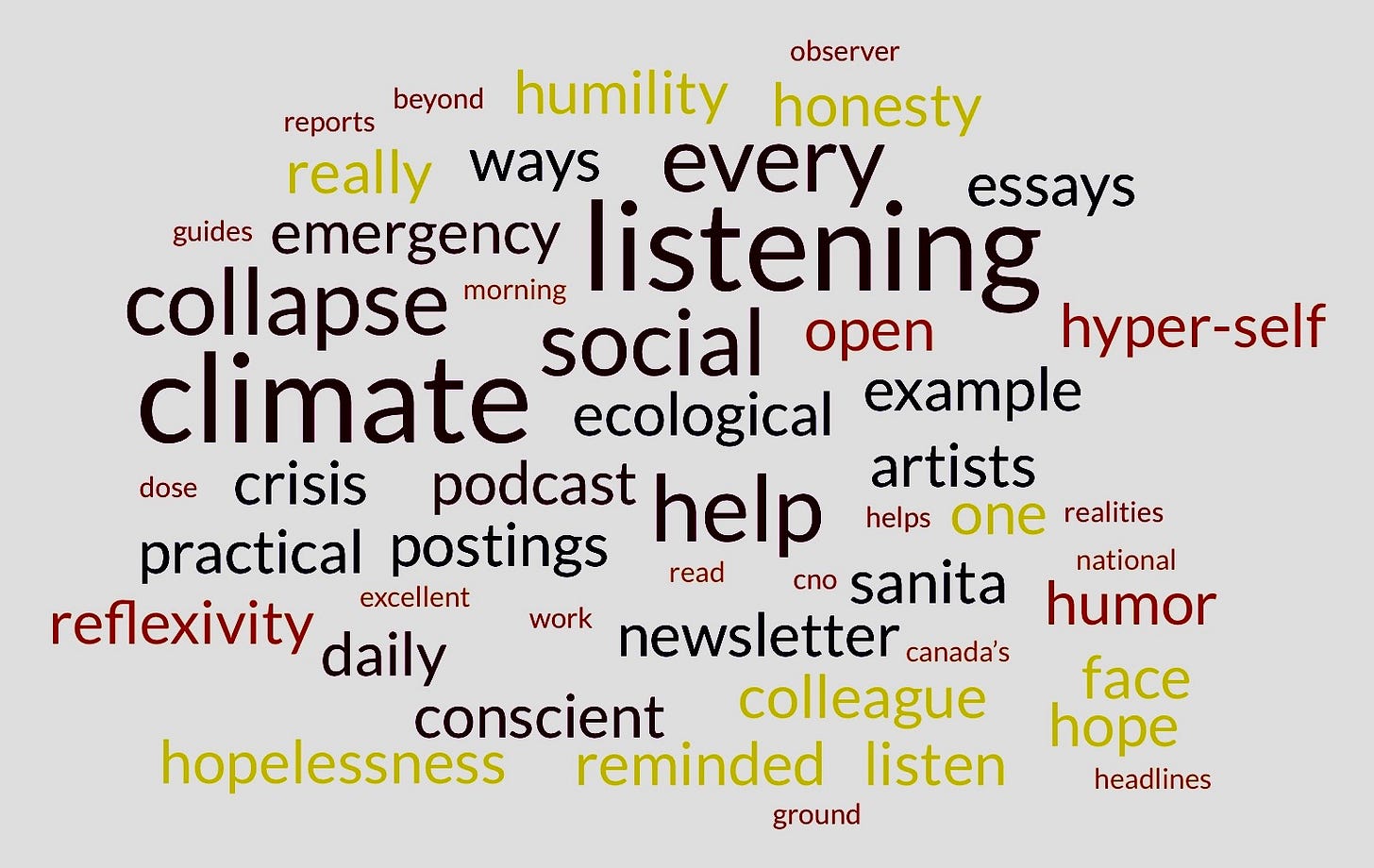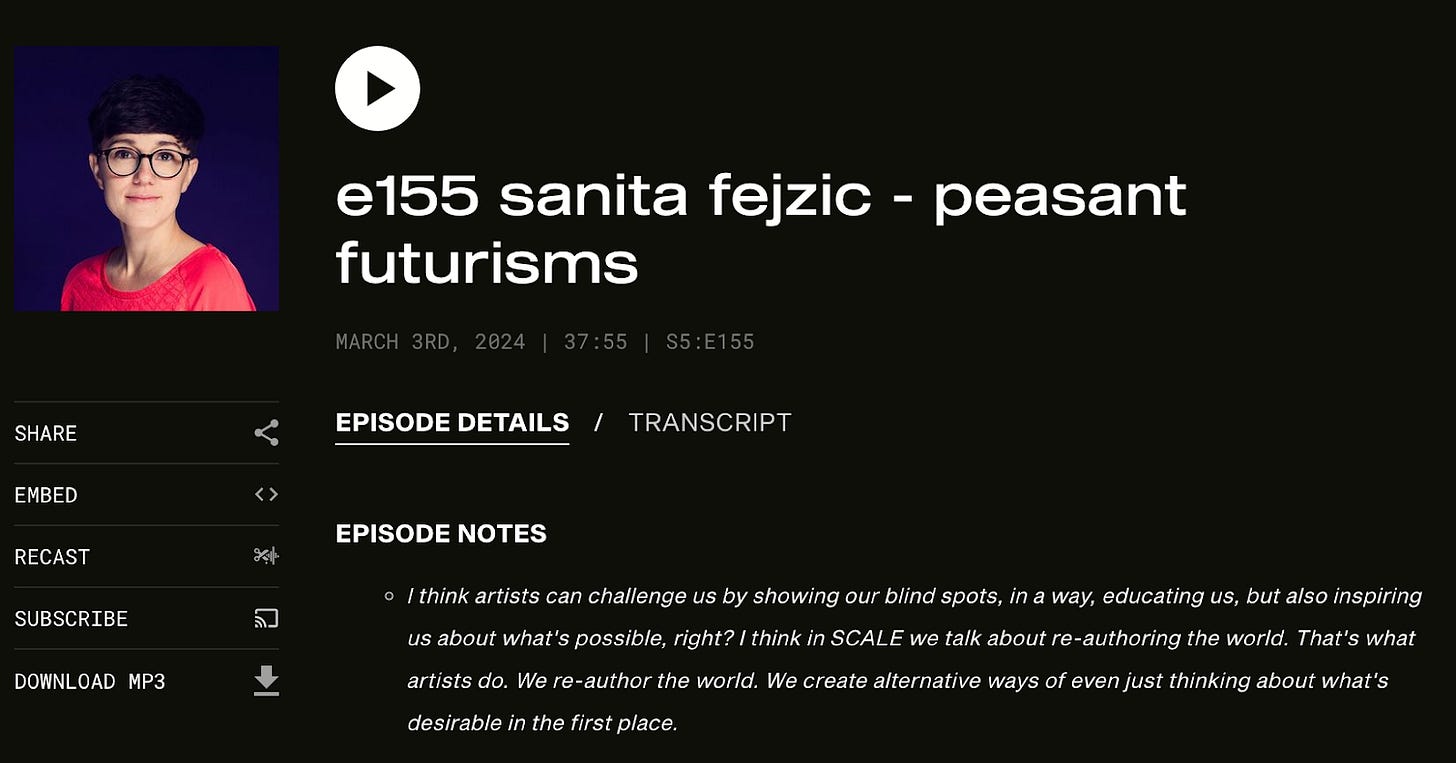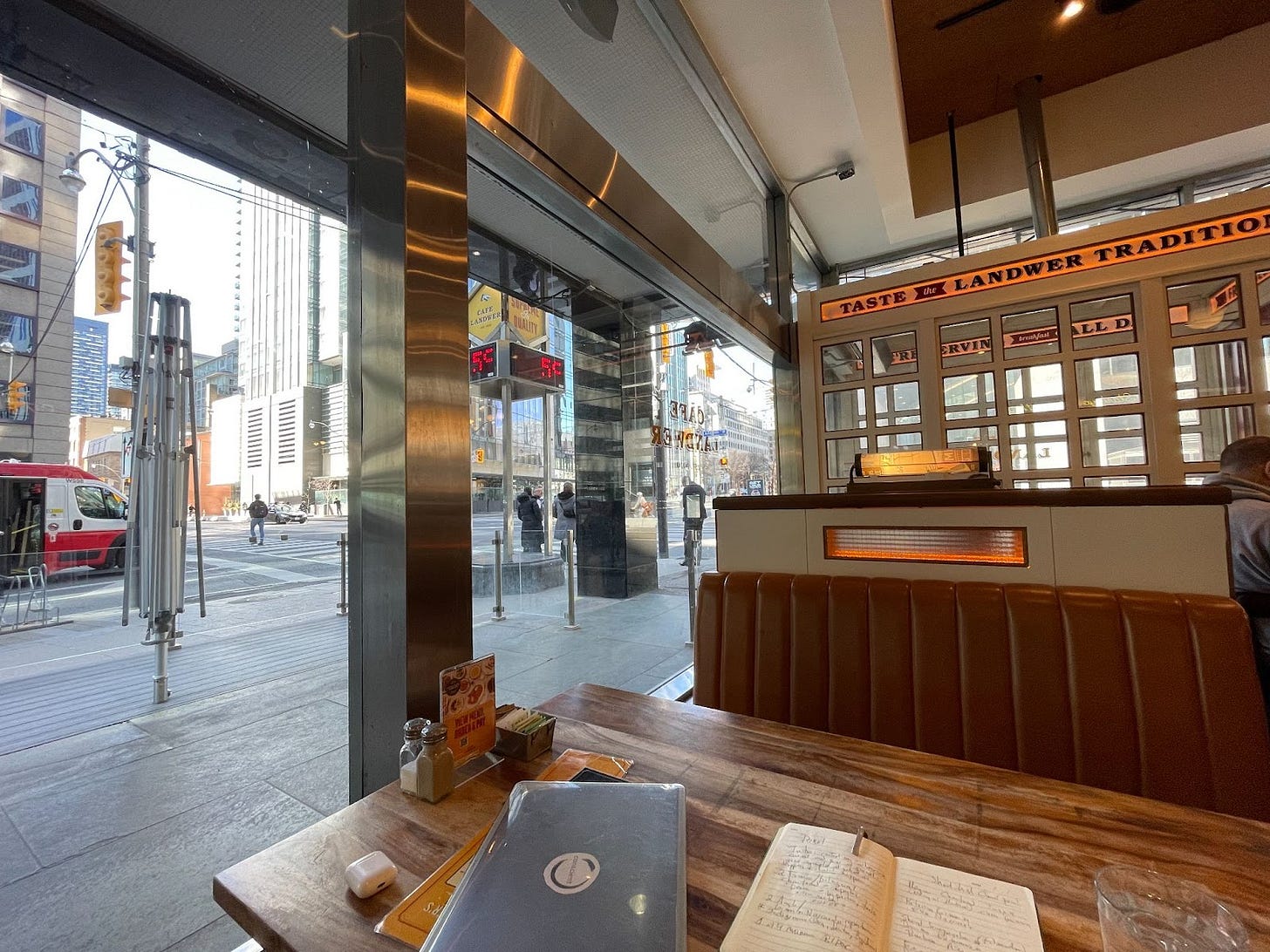listening as a ‘way into’ the ecological crisis
listening, calmly, in every direction, can help us navigate the tension between hope and hopelessness
(note: a podcast version of this posting is also available on this site)
Every morning I read headlines in the excellent Canada’s National Observer.
My daily dose of CNO helps ground me in the realities of the climate emergency (and beyond).
These reports include positive developments, but they’re mostly grim climate news that’s difficult to bear.
I then go about my day recording or editing my conscient podcast or balado conscient about art and the ecological crisis, which, thankfully, is more upbeat: conversations with artists about what they are doing to respond to the poly-crisis.
source: https://conscient-podcast.simplecast.com/episodes/e155-sanita-fejzic-peasant-futurisms
For example, in e155 sanita fejzić - peasant futurisms, novelist, playwright, poet, and essayist Sanita Fejzić speaks about (edited for concision):
‘how artists show us our blind spots, inspire us about what's possible and create alternative ways of thinking about what's desirable in the first place’.
My daily routine (after my Qi Gong) includes reading postings from a range of environment and social justice workers, such as Indigenous Climate Action and fellow newsletter writers Sarah Conner (Collapse2050) and Alan Urban (Collapse Musings), all of whom I admire for their courage, foresight and generosity.
I then filter, digest and draft this information and write short and practical essays, usually c 500 words, like this posting.
I’ve started dozens of postings on topics such as eco-grief, resilience, fiction, regeneration, embodiment, empathy, etc but am slow out of the gate…
source: Landwer Restaurant, Toronto, March, 2024 (photo by me)
One of my challenges is understanding what ‘practical essays’ actually means to the readers (and listeners) of this newsletter, so I asked an arts colleague for advice, who said:
Most people I know are extremely anxious and concerned about the climate emergency but can’t face it. They feel powerless and hopeless so they just keep going with business as usual by default. Be very gentle with them. Try to help them ‘find a way in’.
Their response reminded me that one of those ‘ways in’ is listening.
source: https://conscient-podcast.simplecast.com/episodes/e157-sonic-research-group-part-1
For example, in conscient podcast e157 sonic research group (part 1), my colleague Hildegard Westerkamp observes that listening has become a:
… political, social, cultural question on every level and when a society has a crisis, it's often really good to observe what we really don't want to listen to and who we are listening to and how we combine that.
I agree, Hildi, but it’s hard to listen to, say, climate deniers, white supremacists or green washers and it’s tough to maintain a balance between tuning in and out.
Source: Gesturing Towards Decolonial Futures Collective
Hildi’s observation reminded me of this excerpt from the Gesturing Towards Decolonial Futures Collective’s Gift Contract :
We need to face humanity’s wrongs, our own complicities in harm, and the likelihood of social and ecological collapse in our lifetime, while learning to walk a tightrope between naive hope and desperate hopelessness, with honesty, humility, humor and hyper-self-reflexivity.
Listening, calmly, in every direction, can help us navigate the tension between hope and hopelessness.
Honesty, humility, humor and hyper-self-reflexivity also help, in particular the joy of laughter.
*
My 3 minute presence in your life today is up.
Thanks for reading.
Please feel free to share your thoughts below or share this posting if you think it might be helpful to others.









